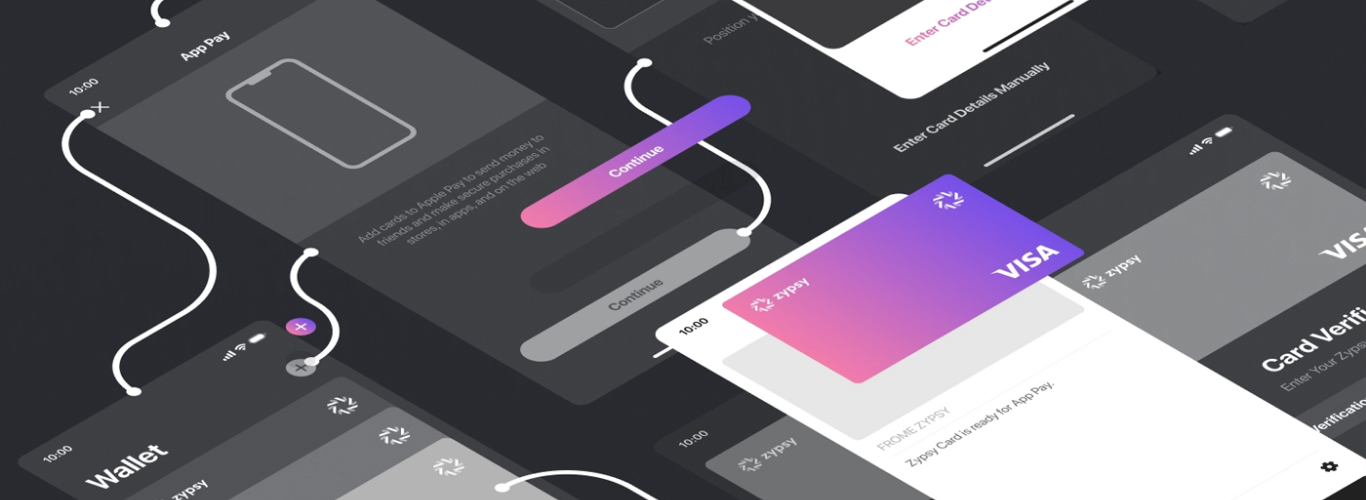In today’s hyper-competitive Saudi Arabian market, customer loyalty programs have evolved from simple point-collection schemes to sophisticated, data-driven ecosystems that can make or break your customer experience strategy. As Vision 2030 continues to reshape the Kingdom’s business landscape, CX managers are finding themselves at the crossroads of tradition and innovation, tasked with building loyalty programs that resonate with both local cultural values and global digital expectations.
The challenge isn’t just implementing customer loyalty programs it’s creating meaningful, lasting connections that drive sustainable business growth while navigating an increasingly complex technological landscape. Whether you’re managing customer experience for a traditional retailer in Riyadh’s bustling souks or overseeing digital transformation for a fintech startup in NEOM, understanding the nuances of loyalty program strategy has never been more critical.
The Evolution of Customer Loyalty in the Saudi Market
Saudi Arabia’s customer loyalty landscape has undergone a remarkable transformation over the past decade. The Kingdom’s rapid digitization, coupled with changing consumer behaviors accelerated by the pandemic, has created unique opportunities and challenges for CX professionals.
Traditional loyalty models that once relied heavily on transactional relationships are giving way to experiential and emotional loyalty frameworks. Saudi consumers, particularly the tech-savvy younger demographic that represents over 60% of the population, expect personalized experiences that acknowledge their individual preferences, cultural context, and digital-first mindset.
The rise of super apps like STC Pay and the increasing adoption of e-commerce platforms have fundamentally altered customer expectations. Today’s Saudi consumers interact with brands across multiple touchpoints, from social commerce on Instagram to voice shopping through smart assistants, creating a complex web of engagement opportunities that loyalty programs must address.
Understanding the Modern Saudi Consumer
To build effective customer loyalty programs in Saudi Arabia, CX managers must first understand the unique characteristics of the Saudi consumer landscape. The Kingdom’s population is young, digitally native, and increasingly discerning about brand values and authentic experiences.
Religious and cultural considerations play a significant role in shaping loyalty program design. Programs that respect Islamic principles, acknowledge important cultural events like Ramadan and Eid, and demonstrate understanding of local customs tend to generate stronger emotional connections. This cultural sensitivity extends beyond mere tokenism—it requires deep integration of local values into the program’s core structure and communication strategy.
The concept of “wasta” (influence through connections) remains culturally significant, making referral programs and community-based loyalty initiatives particularly effective. Saudi consumers value recommendations from their social circles and are more likely to engage with brands that facilitate social sharing and community building within their loyalty ecosystems.
Economic factors also influence loyalty program effectiveness. The Kingdom’s economic diversification efforts have created a more price-conscious consumer base, making value-driven Customer Loyalty Programs increasingly important. However, this price sensitivity is balanced by a growing appreciation for premium experiences and exclusivity, particularly among affluent segments in major cities.
Key Trends Shaping Customer Loyalty Programs in 2025
The loyalty program landscape is evolving rapidly, driven by technological advances and changing consumer expectations. For CX managers in Saudi Arabia, staying ahead of these trends is crucial for program success.
Hyper-Personalization Through AI and Machine Learning
Artificial intelligence has moved beyond basic recommendation engines to enable truly individualized loyalty experiences. Modern programs leverage machine learning algorithms to predict customer behavior, optimize reward timing, and personalize communication across all touchpoints. In the Saudi context, this means understanding cultural nuances, religious observances, and local preferences at an individual level.
Gamification and Interactive Experiences
Saudi consumers, particularly younger demographics, respond strongly to gamified loyalty experiences. Programs incorporating challenges, achievements, and social competition elements see significantly higher engagement rates. The key is balancing entertainment value with meaningful rewards that align with customer lifestyle aspirations.
Sustainability and Social Impact Integration
Environmental consciousness and social responsibility are becoming increasingly important to Saudi consumers, especially as the Kingdom pursues its Vision 2030 sustainability goals. Customer Loyalty Programs that incorporate eco-friendly rewards, carbon offset options, or community impact initiatives resonate strongly with values-driven customers.
Cross-Platform and Ecosystem Integration
The most successful Customer Loyalty Programs no longer operate in isolation. They integrate seamlessly with broader digital ecosystems, from payment platforms to social media networks. In Saudi Arabia’s rapidly evolving fintech landscape, programs that connect with digital wallets, banking services, and e-commerce platforms provide superior value propositions.
Choosing the Right Technology Platform
One of the most significant challenges facing CX managers is selecting appropriate technology to support their loyalty program ambitions. The decision extends far beyond basic functionality to encompass scalability, integration capabilities, data security, and cultural adaptability.
Cloud-Based vs. On-Premise Solutions
The debate between cloud-based and on-premise loyalty platforms has largely been settled in favor of cloud solutions, particularly in Saudi Arabia where rapid scaling and flexibility are essential. Cloud platforms offer superior agility, automatic updates, and reduced infrastructure costs—critical factors for organizations navigating the Kingdom’s fast-paced business environment.
However, data sovereignty and security concerns remain paramount, especially for financial services and healthcare organizations. The solution lies in choosing platforms that offer local data residency options while maintaining global scalability and compliance with both Saudi and international data protection standards.
Integration Capabilities and API Ecosystem
Modern loyalty platforms must seamlessly integrate with existing technology stacks, from CRM systems to e-commerce platforms to mobile applications. The ability to create unified customer profiles across all touchpoints is essential for delivering cohesive experiences that Saudi consumers expect.
API-first architectures enable organizations to build flexible, customizable loyalty ecosystems that can adapt to changing business requirements without complete platform overhauls. This flexibility is particularly valuable in Saudi Arabia’s dynamic market where new distribution channels and partnership opportunities emerge regularly.
Mobile-First Design and Omnichannel Capabilities
With mobile penetration exceeding 95% in Saudi Arabia, Customer Loyalty Programs must prioritize mobile experiences. This extends beyond responsive design to encompass native mobile features like push notifications, location-based services, and integrated payment capabilities.
The most effective platforms support true omnichannel experiences, allowing customers to earn and redeem rewards seamlessly across online, mobile, and physical touchpoints. This capability is essential for retailers operating in Saudi Arabia’s hybrid shopping environment where consumers frequently switch between digital and physical channels within single purchase journeys.
Justifying Investment in Customer Loyalty Programs
Perhaps the greatest challenge facing CX managers is building compelling business cases for loyalty program investments. Senior leadership often questions the ROI of loyalty initiatives, particularly when faced with competing priorities and budget constraints.
Quantifiable Business Impact Metrics
Successful justification requires moving beyond vanity metrics to focus on business-critical KPIs. Customer lifetime value (CLV) improvement represents the most compelling argument, as loyalty programs can increase CLV by 15-25% when properly implemented. In Saudi Arabia’s competitive market, even modest CLV improvements translate to significant revenue impact over time.
Retention rate improvements provide another powerful justification angle. Acquiring new customers costs 5-7 times more than retaining existing ones, making retention-focused loyalty programs highly cost-effective investments. For Saudi businesses competing in saturated markets, retention improvements often provide more sustainable growth paths than pure acquisition strategies.
Share of wallet expansion represents a third critical metric. Effective Customer Loyalty Programs encourage customers to consolidate their spending within brand ecosystems, increasing average transaction values and purchase frequency. This metric is particularly relevant for Saudi retailers and service providers operating in categories where customers typically maintain relationships with multiple competing brands.
Risk Mitigation and Competitive Positioning
Beyond direct financial returns, loyalty programs provide strategic value through risk mitigation and competitive differentiation. In Saudi Arabia’s price-sensitive environment, loyalty programs create switching costs that protect against competitor price-based attacks.
The data insights generated through loyalty programs represent significant strategic assets. Customer behavior data, preference insights, and predictive analytics capabilities enable better inventory management, more effective marketing campaigns, and improved product development decisions. These operational improvements often justify program costs independently of direct loyalty benefits.
Long-Term Strategic Value Creation
The most sophisticated justification approaches focus on long-term strategic value rather than short-term tactical benefits. Loyalty programs create platforms for ongoing customer relationship development, enabling brands to evolve their value propositions based on changing customer needs and market conditions.
In Saudi Arabia’s rapidly evolving market, this adaptability represents crucial competitive advantage. Programs that start with basic point accumulation can evolve into comprehensive lifestyle platforms, creating deeper customer relationships and higher barriers to competitive threats.
Cultural Considerations for Saudi Arabian Programs
Successfully implementing customer loyalty programs in Saudi Arabia requires deep understanding of local cultural nuances and Islamic principles. Programs that demonstrate authentic cultural awareness significantly outperform generic, globally-standardized approaches.
Islamic Values Integration
Loyalty program design must align with Islamic principles, avoiding elements that could be perceived as gambling or interest-based transactions. Point expiration policies, for example, should be transparent and fair, avoiding arbitrary deadlines that could be seen as unjust enrichment.
Charitable giving options within loyalty programs resonate strongly with Saudi consumers, particularly during Ramadan and other significant religious periods. Programs that enable customers to donate points to verified charitable causes or participate in community service initiatives create emotional connections that transcend transactional relationships.
Social and Family Dynamics
Saudi Arabian society places strong emphasis on family and social connections, creating opportunities for innovative loyalty program features. Family sharing capabilities, group challenges, and social gifting options align with cultural values while encouraging program engagement across extended social networks.
The concept of hospitality (karam) is deeply embedded in Saudi culture, making VIP treatment and exclusive access particularly valued rewards. Programs that offer behind-the-scenes experiences, early product access, or personalized service upgrades tap into these cultural preferences effectively.
Language and Communication Preferences
While English proficiency is high among educated Saudi consumers, Arabic-language communications often generate stronger emotional responses. Loyalty programs should support fully localized Arabic experiences, including right-to-left interface layouts, Arabic typography, and culturally appropriate imagery.
Communication timing must also respect local customs and religious observances. Promotional messages during prayer times or on religious holidays may be perceived negatively, while communications that acknowledge important cultural events demonstrate respect and understanding.
Technology Implementation Best Practices
Successful loyalty program implementation requires careful attention to technical details and user experience optimization. The most common implementation failures stem from inadequate planning, insufficient testing, or poor integration with existing systems.
Phased Rollout Strategies
Rather than attempting comprehensive launches, successful organizations typically adopt phased rollout approaches. Starting with core functionality and gradually adding advanced features allows for iterative improvement based on real user feedback and behavior data.
In Saudi Arabia’s diverse market, regional rollouts can provide valuable insights before nationwide launches. Testing programs in major metropolitan areas like Riyadh and Jeddah before expanding to smaller cities allows for optimization based on varying consumer preferences and technological adoption patterns.
Data Security and Privacy Compliance
Data protection requirements in Saudi Arabia continue to evolve, making robust security frameworks essential for loyalty program success. Programs must implement comprehensive data encryption, secure API protocols, and transparent privacy policies that comply with both local regulations and international standards.
Customer data portability and deletion rights are becoming increasingly important, requiring platforms that support easy data export and complete removal capabilities. These technical requirements should be planned from initial implementation rather than retrofitted later.
Performance Optimization and Scalability
Loyalty platforms must handle significant traffic spikes during promotional periods, cultural events, and seasonal shopping seasons. The Saudi market’s concentrated shopping patterns around religious holidays and cultural celebrations create particularly challenging scaling requirements.
Load testing and performance optimization should incorporate these usage patterns, ensuring seamless experiences during peak demand periods. Auto-scaling capabilities and content delivery network integration become essential for maintaining performance across Saudi Arabia’s geographically diverse market.
Measuring Success and Optimization Strategies
Effective loyalty program management requires sophisticated measurement frameworks that go beyond basic engagement metrics to capture true business impact and customer satisfaction.
Advanced Analytics and Attribution Modeling
Modern loyalty programs generate vast amounts of data that can provide unprecedented insights into customer behavior and program effectiveness. However, extracting actionable insights requires sophisticated analytics capabilities that many organizations struggle to implement effectively.
Multi-touch attribution models help organizations understand how loyalty program interactions influence customer behavior across the entire purchase journey. This is particularly important in Saudi Arabia’s complex retail environment where customers frequently research online before purchasing in-store, or vice versa.
Predictive analytics capabilities enable proactive program optimization, identifying customers at risk of churn before they disengage and predicting which rewards will drive desired behaviors. These insights allow for personalized intervention strategies that improve retention and program ROI.
A/B Testing and Continuous Optimization
The most successful loyalty programs treat implementation as the beginning rather than the end of the optimization process. Continuous A/B testing of program elements—from reward structures to communication strategies—enables data-driven improvement over time.
Testing should encompass both tactical elements (email subject lines, app interface layouts) and strategic components (reward ratios, tier structures, partnership offerings). In Saudi Arabia’s diverse market, testing should also account for cultural and demographic variables that might influence program effectiveness.
Customer Feedback Integration
Quantitative analytics must be balanced with qualitative customer feedback to provide complete pictures of program performance. Regular surveys, focus groups, and social media monitoring help identify areas for improvement that might not be apparent from behavioral data alone.
Saudi customers often provide indirect feedback through social channels and word-of-mouth communications, making social listening capabilities particularly important for program optimization. Monitoring Arabic-language social media platforms and traditional word-of-mouth networks provides insights that English-language feedback systems might miss.
Future-Proofing Your Loyalty Strategy
The rapid pace of technological and social change in Saudi Arabia requires loyalty programs that can adapt and evolve without fundamental restructuring. Building future-ready programs requires careful consideration of emerging trends and technologies.
Emerging Technology Integration
Artificial intelligence, blockchain technology, and augmented reality are beginning to influence loyalty program design and delivery. While these technologies are still maturing, early adoption can provide competitive advantages for organizations willing to experiment thoughtfully.
AI-powered personalization is moving beyond recommendation engines to encompass dynamic reward optimization, predictive customer service, and automated program management. Organizations that develop these capabilities early will be better positioned as competition intensifies.
Blockchain technology offers potential solutions for loyalty program interoperability and security, though practical implementations remain limited. However, understanding blockchain principles and potential applications helps organizations prepare for future developments in loyalty program infrastructure.
Sustainability and Social Impact Evolution
Environmental and social consciousness among Saudi consumers continues to grow, influenced by Vision 2030 initiatives and global awareness trends. Loyalty programs that incorporate sustainability elements and social impact opportunities are likely to become increasingly important for brand differentiation.
This evolution extends beyond simple charitable donation options to encompass circular economy principles, carbon footprint tracking, and community engagement platforms. Programs that help customers understand and reduce their environmental impact while supporting local communities align with emerging values-driven loyalty trends.
Transforming Customer Experience Through Strategic Loyalty Program Implementation
The loyalty program landscape in Saudi Arabia presents unprecedented opportunities for CX managers willing to embrace innovation while respecting cultural values and local market dynamics. Success requires moving beyond traditional point-based thinking to create comprehensive customer experience platforms that drive emotional engagement and sustainable business growth.
The organizations that will thrive in this evolving landscape are those that view loyalty programs not as marketing tactics but as strategic business platforms that enable deeper customer relationships, valuable data insights, and sustainable competitive advantages. These programs become integral parts of the customer experience ecosystem, supporting everything from product development to customer service to strategic planning.
For CX managers navigating this complex landscape, the key is balancing ambitious vision with practical implementation capabilities. The most sophisticated loyalty program design means nothing without flawless execution, ongoing optimization, and genuine commitment to customer value creation.
The future belongs to organizations that can seamlessly blend cutting-edge technology with authentic cultural understanding, creating loyalty experiences that feel both globally sophisticated and locally relevant. In Saudi Arabia’s dynamic market, this balance between innovation and tradition represents the path to sustainable customer loyalty and business success.
As you embark on or refine your loyalty program journey, remember that success comes not from implementing the most advanced technology or copying successful programs from other markets, but from creating authentic value for your specific customers while building sustainable business advantages for your organization.
The investment in time, resources, and strategic focus required for loyalty program success is significant, but the potential returns—in terms of customer retention, lifetime value improvement, and competitive differentiation—make this one of the most important strategic initiatives CX managers can undertake in today’s market environment.
Elevate Your Customer Loyalty Program with Expert Strategic Guidance Like (webkeyz)
Implementing a successful customer loyalty program in Saudi Arabia’s unique market requires more than just technology—it demands deep understanding of local consumer behavior, cultural nuances, and the rapidly evolving digital landscape. At webkeyz, we specialize in crafting loyalty program strategies that resonate with Saudi consumers while driving measurable business results.
Our team of loyalty program experts combines global best practices with local market insights to help you navigate the complexities of program design, technology selection, and performance optimization. From initial strategy development to ongoing program management, we provide the expertise and support you need to transform customer relationships and achieve sustainable growth.
Ready to revolutionize your customer experience strategy? Contact webkeyz today to discover how our proven loyalty program methodology can help you build deeper customer connections, increase retention rates, and drive long-term business success in Saudi Arabia’s competitive marketplace.
Until next time explore webkeyz’s case studies
and Keep Thinking!








